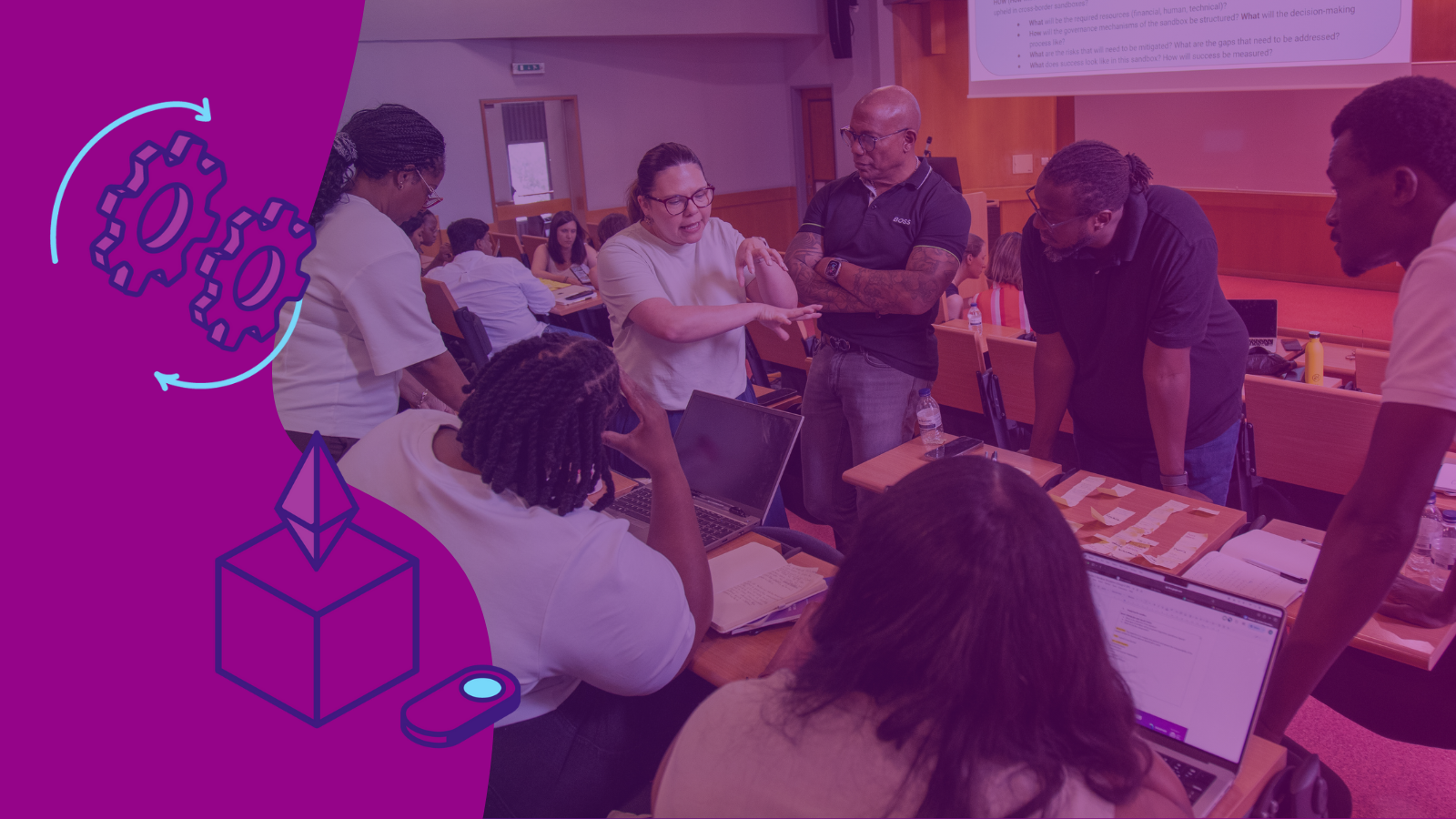A new kind of learning space for a new kind of governance
From June 30 to July 4, 2025, at the Universidade Católica Portuguesa in Lisbon, something quietly transformative took place. A global cohort of regulators, civic technologists, policymakers, and researchers came together not to attend a conference, but to build one of the most promising tools in digital governance: the sandbox.
The Sandbox Summer School wasn’t a seminar, a retreat, or a networking event. It was a hands-on lab designed to transform a shared global challenge into a practical, usable action plan. Developed by the Datasphere Initiative, the program responded to a visible gap. Despite the growing interest in regulatory sandboxes, no in-depth, applied training existed for those building them across sectors.
This was the first dedicated global training program focused entirely on the use of sandboxes as governance tools.
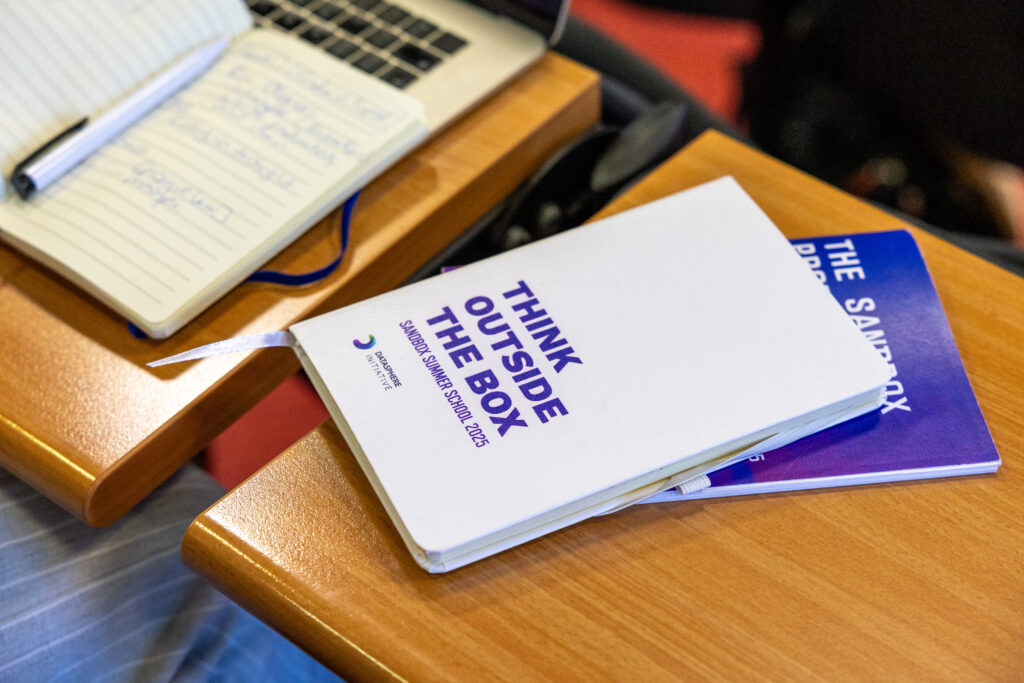
A live lab for making policy tools that work
The Summer School offered a structured, immersive setting shaped around one central goal: enabling participants to test, refine, and prototype sandbox designs grounded in their local realities.
Over five days, participants explored how operational and regulatory sandboxes are being used in areas such as AI, finance, digital public infrastructure, health, and local governance. The program combined theoretical exploration with practical applications, including stakeholder mapping, institutional readiness assessments, and methods for evaluating sandbox outcomes.
Rather than delivering fixed models to replicate, the sessions introduced flexible methodologies that could be shaped to diverse contexts. Each phase of sandbox development (initiation, planning, engagement, implementation, and evaluation) served as a lens through which participants worked through their own use cases.
Kayla Higgs-Jones, Government Communications Specialist of Turks and Caicos Islands Government beautifully said:

“During the training, we examined how sandbox frameworks are being applied across various sectors, including healthcare, digital identity, medical devices, and data governance. From regulatory experimentation to co-creative design sessions, the programme provided in-depth insights into how sandboxes can facilitate agile and innovative policy and tech development in complex regulatory environments.”
Peer feedback was central throughout the process. Because attendees arrived with widely varying levels of experience, every conversation became an opportunity for insight. One participant’s challenge became another’s design prompt. The cohort itself became part of the learning infrastructure.
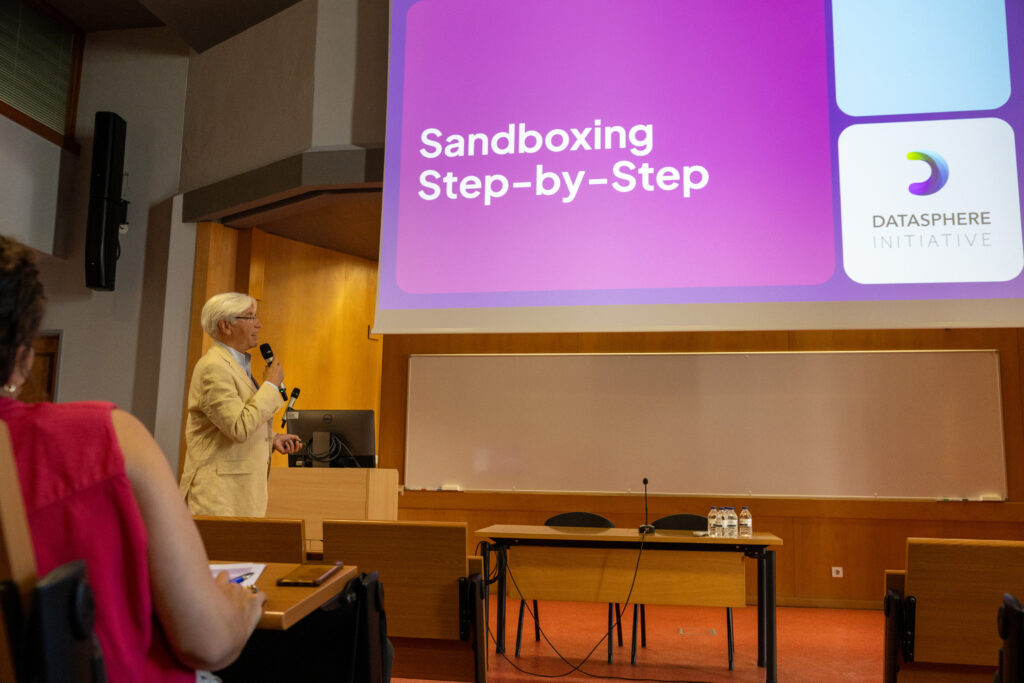
A cohort built for cross-pollination
The group included public officials, civic technologists, policy advisors, and researchers from countries across Africa, Asia, Latin America, and Europe. Some were navigating fast-moving regulatory shifts. Others were working within institutions looking for new ways to engage with technology and data.
Despite the diversity of roles and regions, shared challenges emerged quickly. Trust-building, operational complexity, public engagement, and institutional constraints were common threads. Conversations that began in workshops spilled into lunch breaks, sparking unexpected collaborations.
Ideas developed rapidly. Loose concepts were shaped into structured pilots. Policy questions were translated into testable designs. By the final day, each participant presented a sandbox prototype tailored to a real-world challenge.
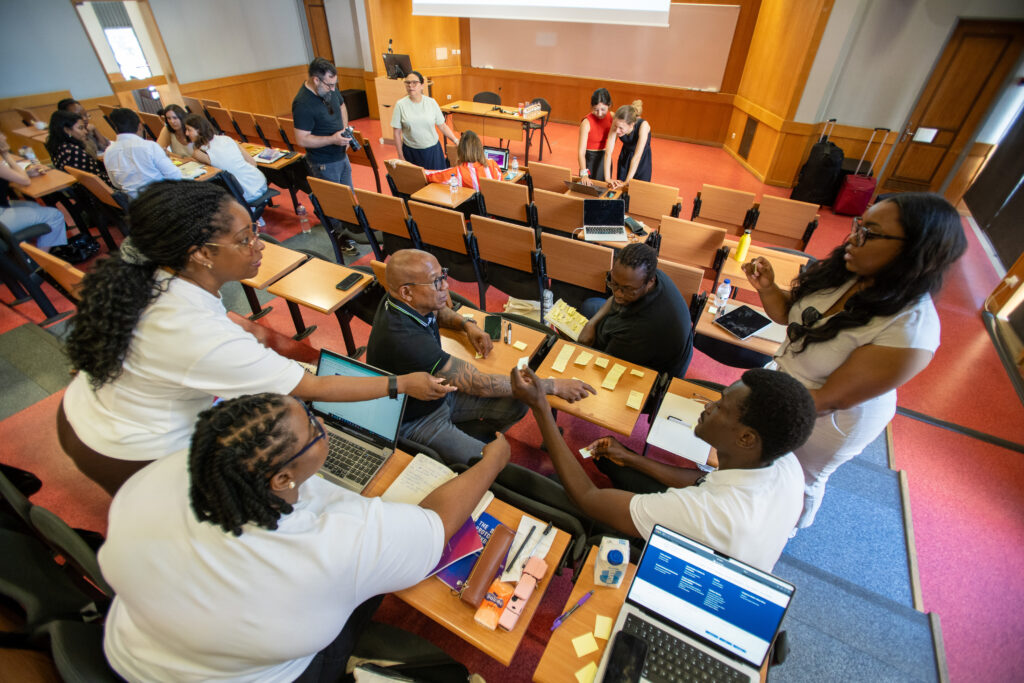
From zero to prototype
The environment combined structure with fast iteration. There were modules and learning objectives, but also space to test and reshape the process itself.
Experts from the Datasphere Initiative were embedded in the work. Rather than delivering lectures and stepping back, they engaged with working groups, provided feedback, and co-developed alongside participants. This mirrored the collaborative nature of sandboxes themselves.
Participants did the same for one another. Feedback loops ran in every direction, making the program feel more like a lab than a classroom.
One participant, Nidhi Sudhan, co-founder of Citizen Digital Foundation and one of the “100 Brilliant Women in AI Ethics 2024,” described it this way:
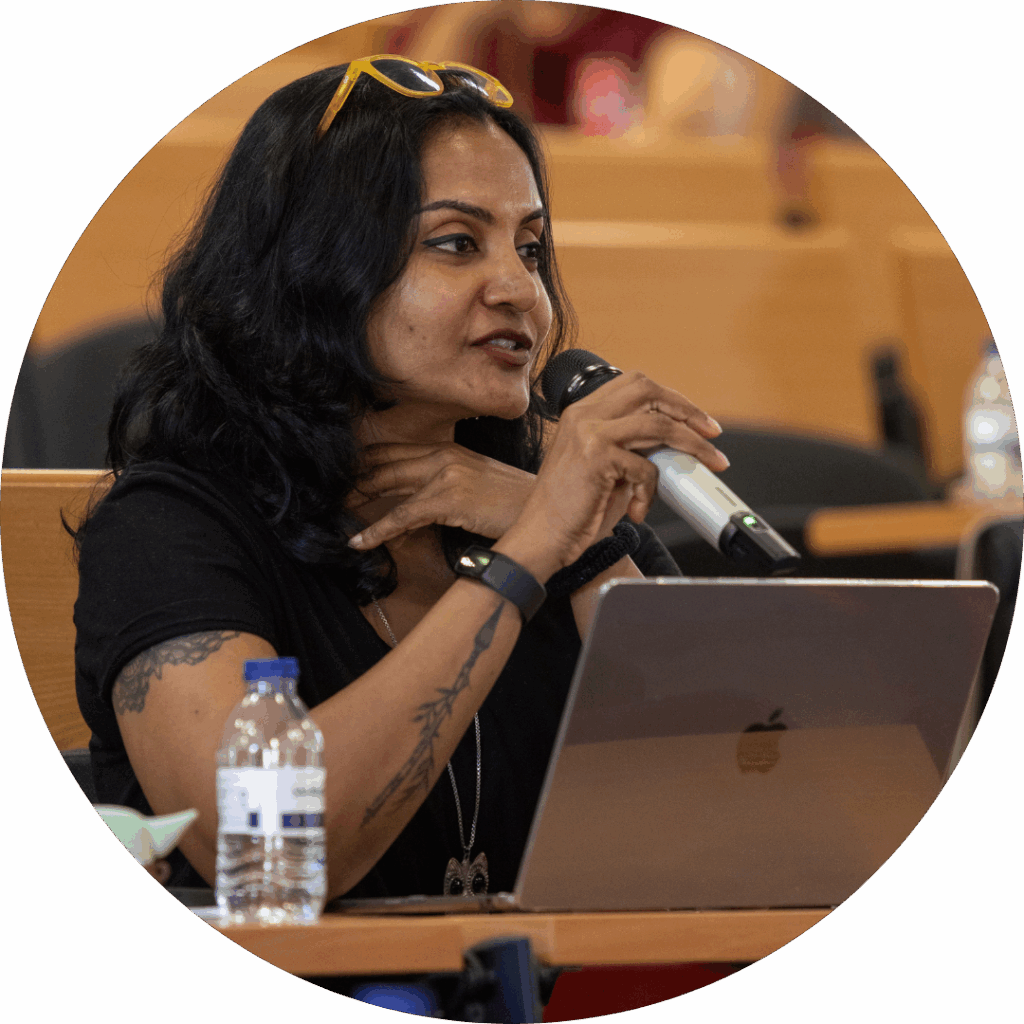
“0-to-prototype in 5 days! I didn’t think a 5-day workshop could equip me for that, but that’s exactly how Datasphere Initiative structured the #SandboxSummerSchool… we didn’t just leave with the learnings but built and presented an actual, implementable prototype.”
This was the goal. To leave not only with new knowledge, but with something tested, sharpened, and ready to be implemented.
The first edition, but not the last
The Lisbon program set a precedent, and a second edition is already in the works. The depth of participation and quality of the outputs pointed to a growing global need for spaces like this, where governance ideas are not just discussed, but prototyped.
For now, the week in Lisbon remains a reference point for those who were there. And for those who weren’t, the best way to understand what it offered may be to experience it firsthand.
Interested in the next edition? Applications will open soon. Let us know if you’d like to be involved.
Let’s continue building the future of governance, one prototype at a time.
